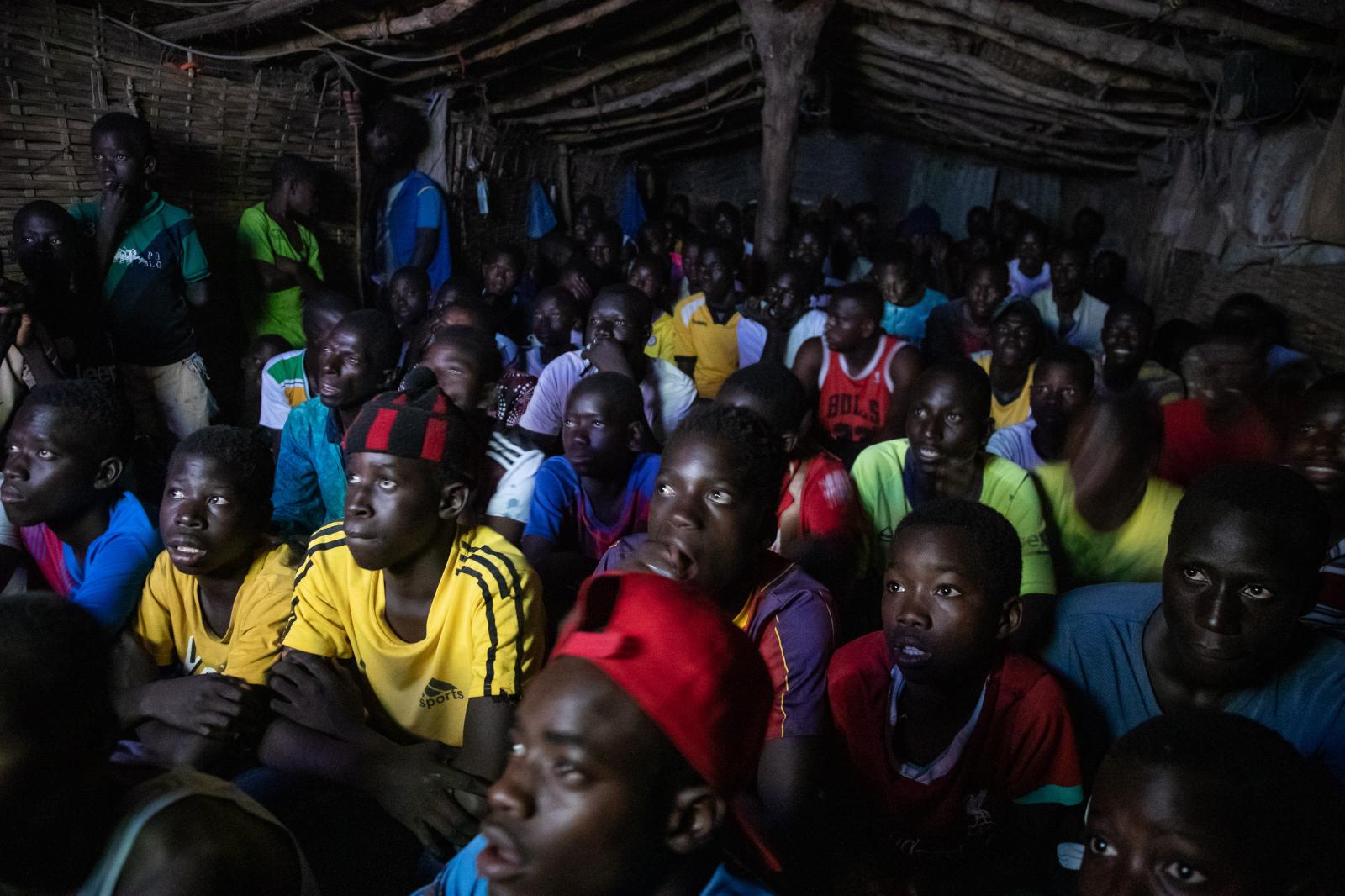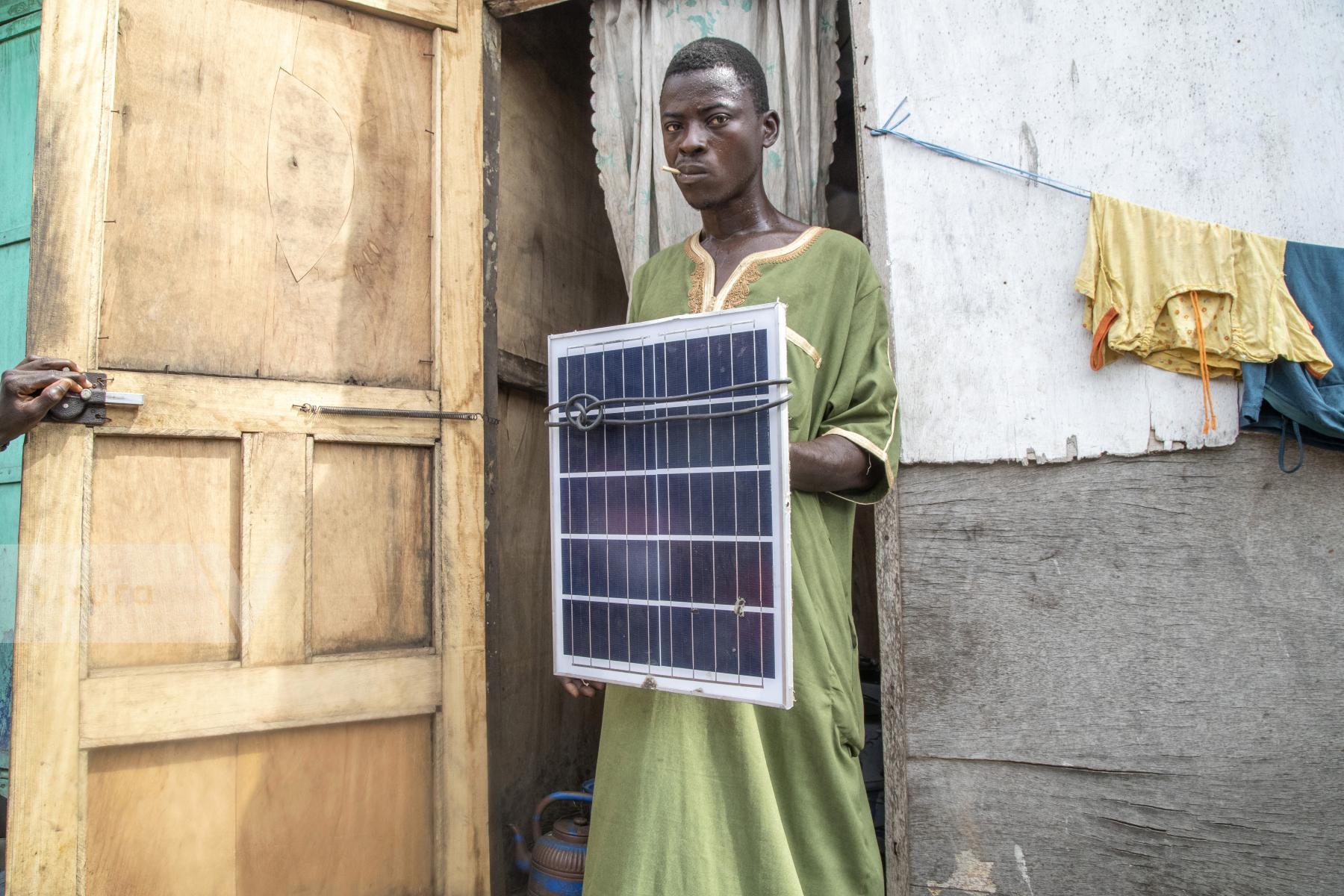
Nurideen, 35, with a defective solar panel he keeps at his home. It is of no value to scrap dealers as they can only resell the metal of the small frame. As there are no regulations for professional solar waste disposal in most African countries, it becomes part of the general e-waste problem. Accra Ghana
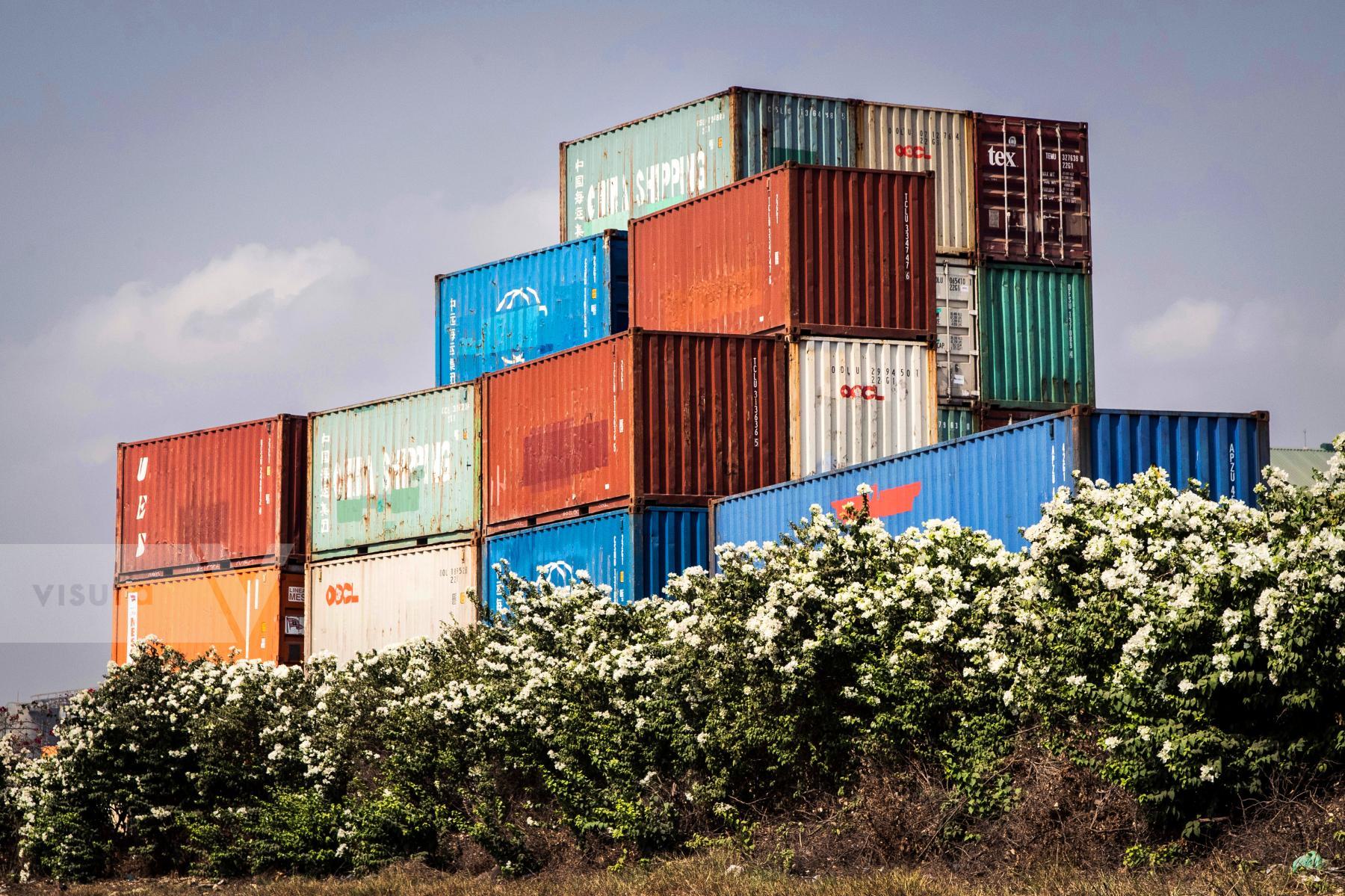
Containers at Tema Port. New electronic items as well as broken electronics items are entering and leaving Ghana through this Port. Accra Ghana
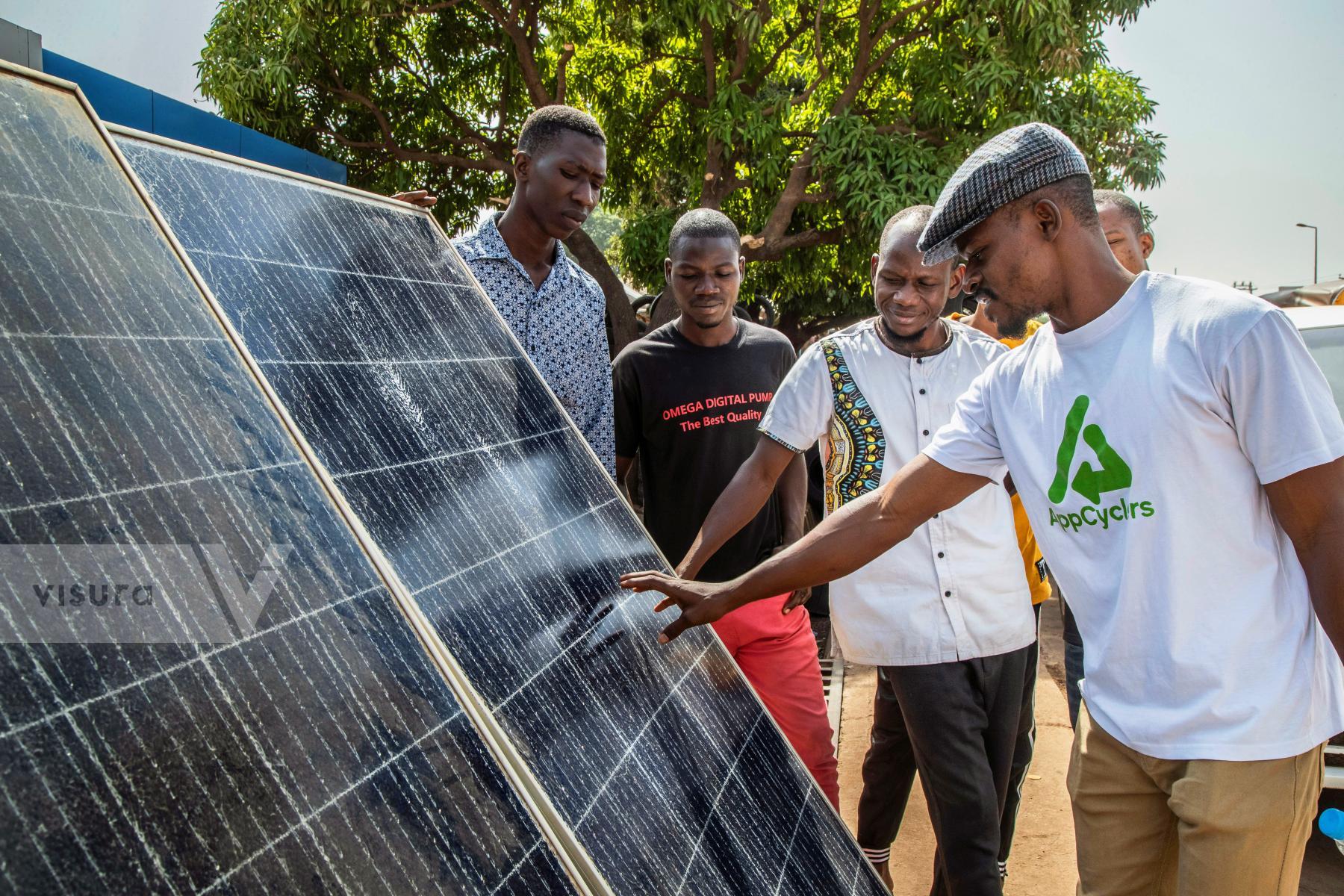
Agabas, 25 years, is discussing with workers of a solar company what to do with a broken solar panel. There is no professional waste management for broken solar panels and even for scrap dealers they don`t have any value. Solar companies keep them in storage with no solution. Agabas is founder of the young e-waste management start-up “AppCyclers”. Tamale Ghana
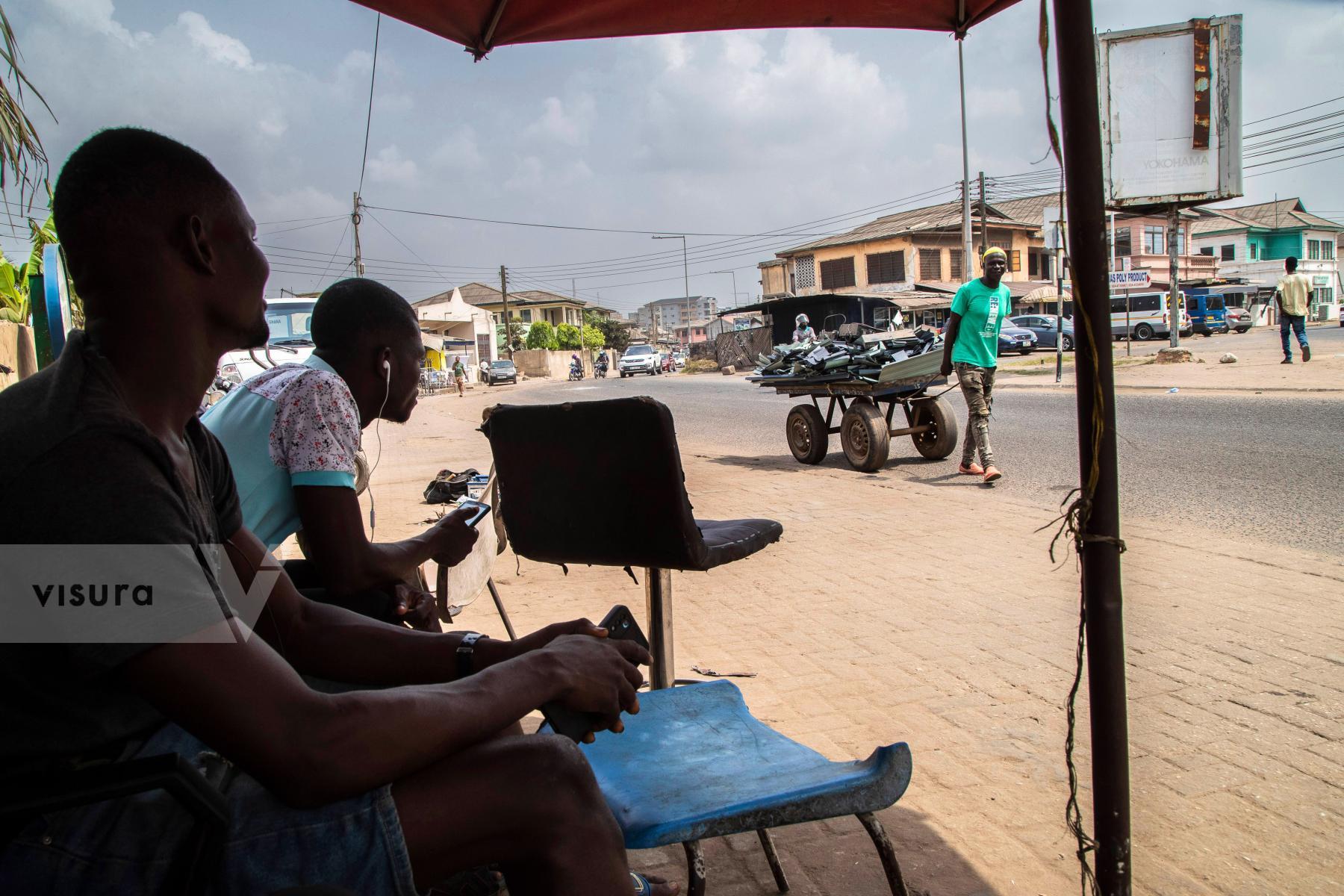
Scrap dealers are waiting for broken electronics to buy and resell at the e-waste recycling site. Accra Ghana
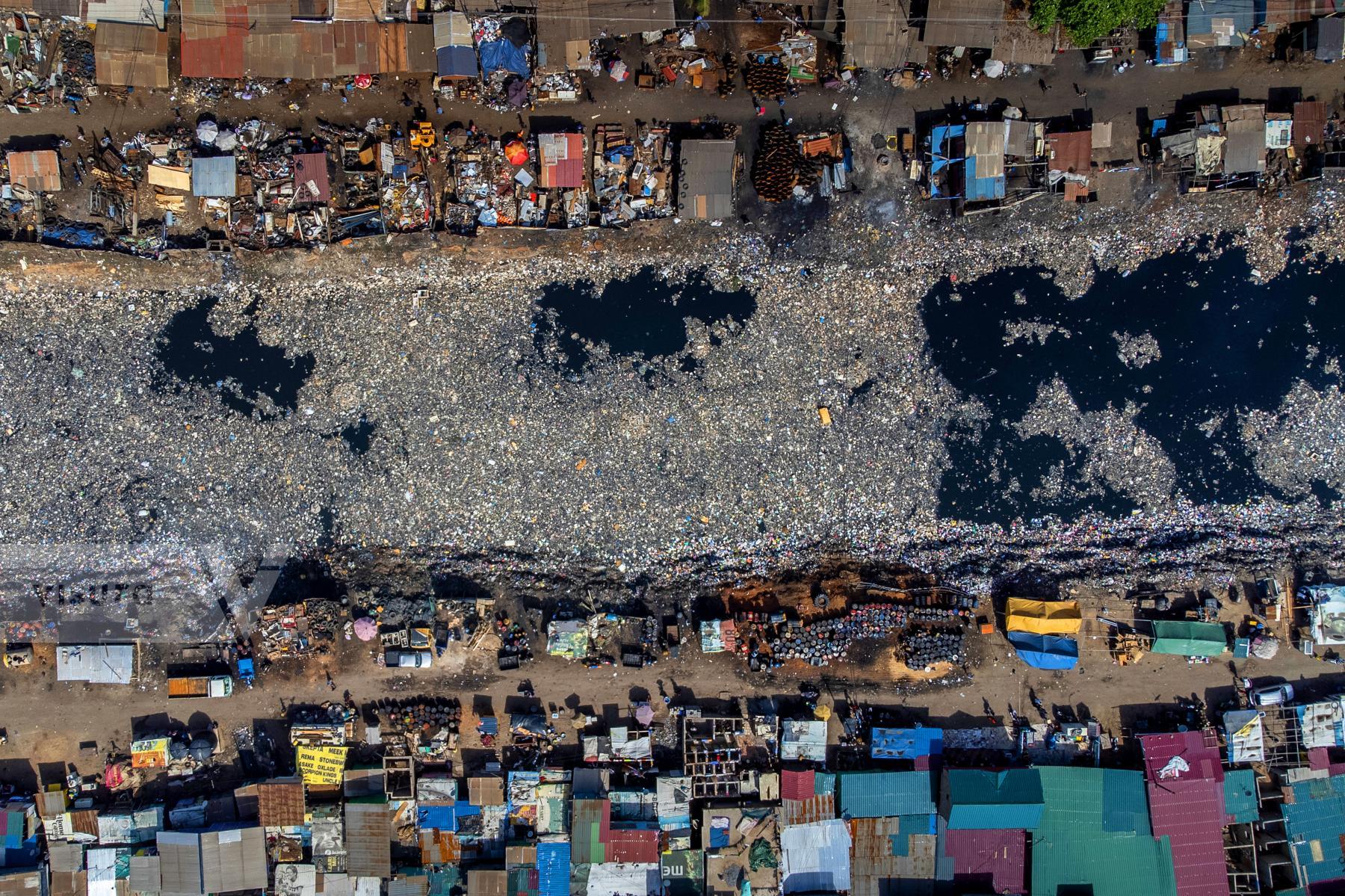
A river flows through the informal newly emerged electronic scrap processing site in Accra. The government closed the notorious Agbogbloshie e-waste yard in 2021. 40,000 people lived there and it was considered one of the worst contaminated places in the world. The closure did not solve the problem. Within a few weeks an identical site was created. The scrap often comes illegally from abroad, including Germany. Accra Ghana
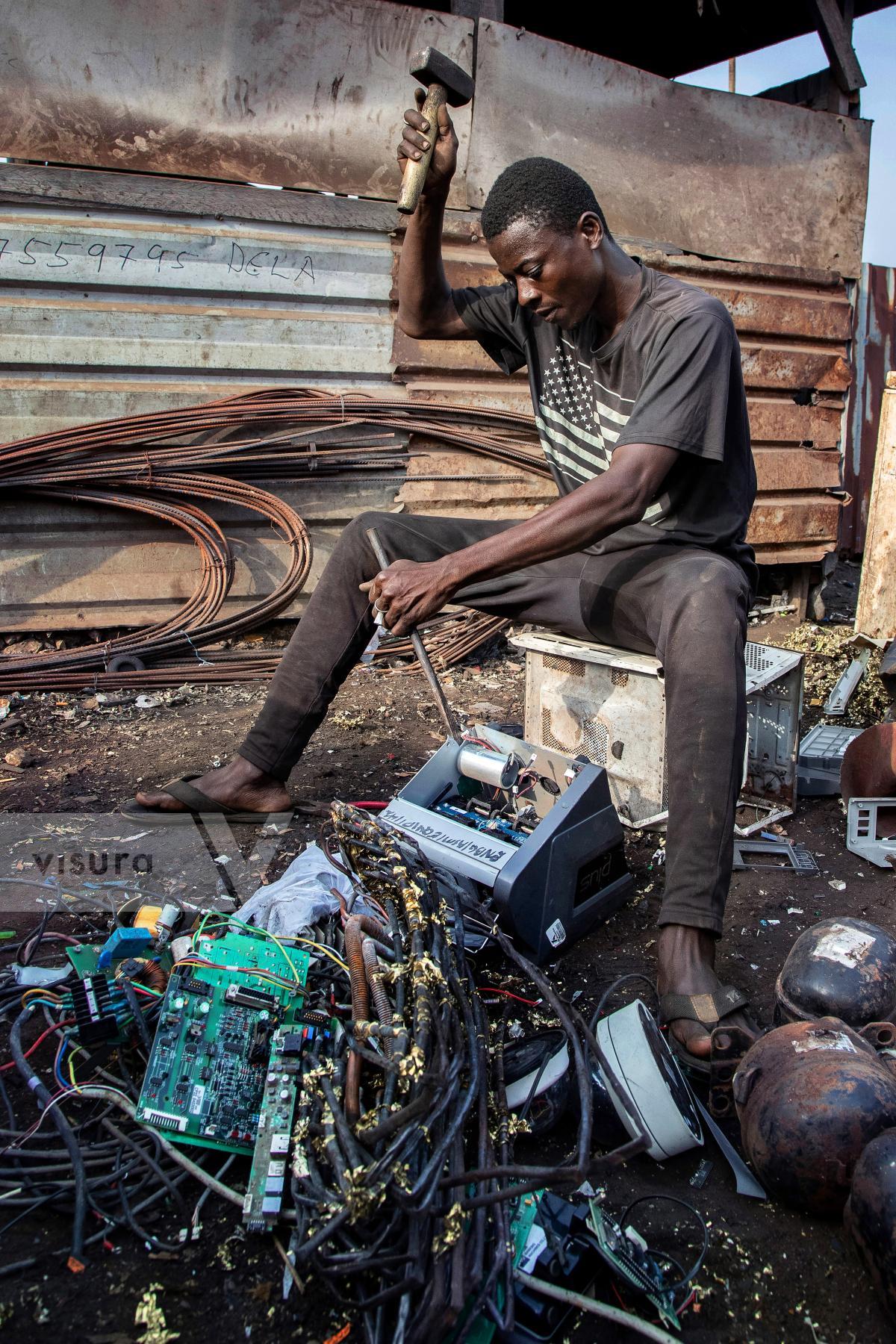
Nurideen, 35 years, is breaking down a broken battery charger inverter, which was used as backup system in a PV energy storage system. He will resell valuable material like copper or metal. Materials he can not resell will be burnt. The number of broken solar items is increasing. There are no regulations for professional solar waste disposal in most African countries, thus it becomes part of the general e-waste problem. Broken Solar panels do not even find buyers for unregulated recycling, they have no value to e-waste collectors. Accra Ghana
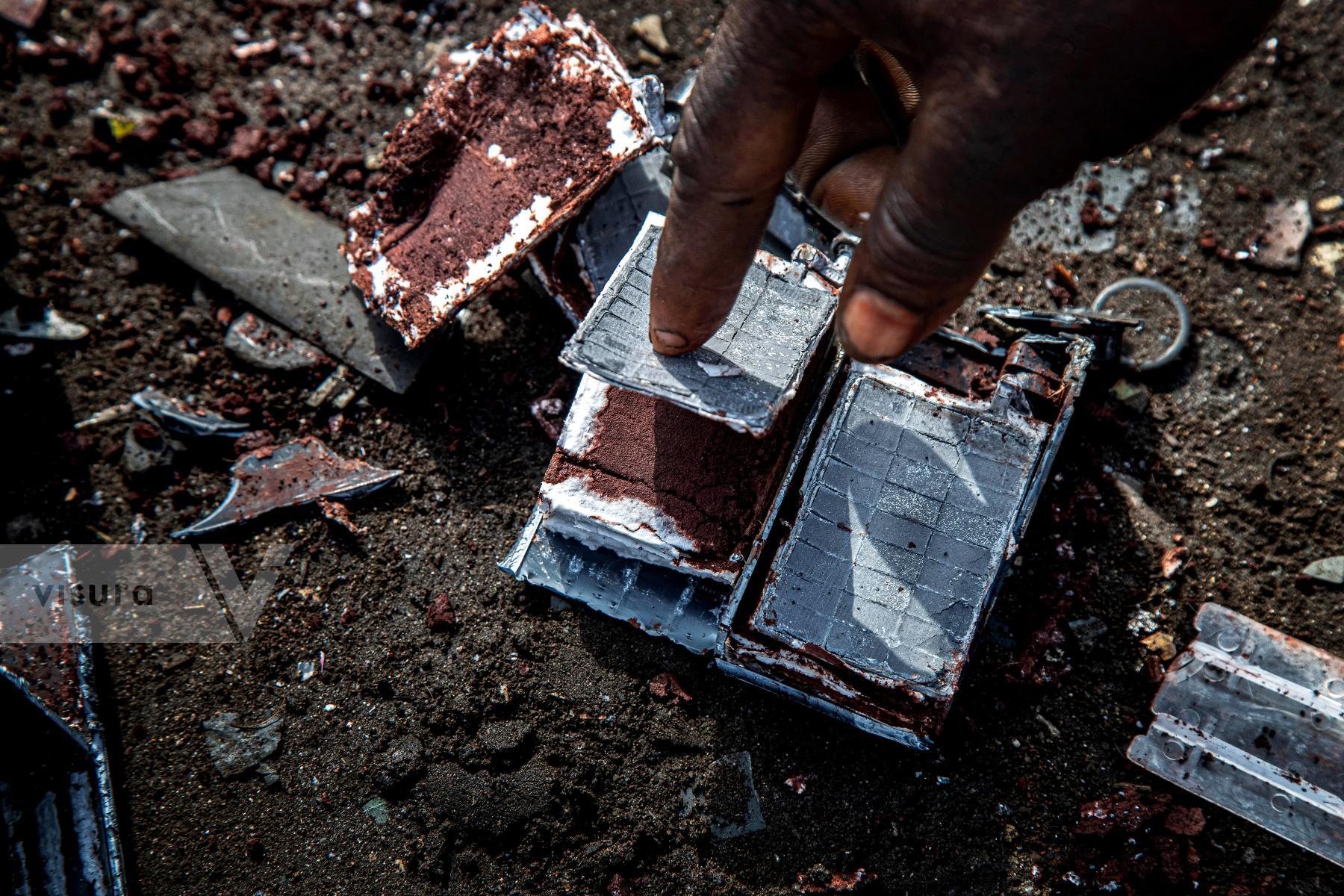
A broken battery, used for UPS systems in a PV system at the e-waste dump. The lead is the most valuable part and highly toxic in direct contact with a person. The batteries are mostly opened with machetes, the acid is thrown away, the lead is melted together in factories around the port and shipped back mostly to Europe, China or the US where it is used again to produce new electronic items. There are no regulations for professional solar waste disposal in most African countries, thus it becomes part of the general e-waste problem. Accra Ghana
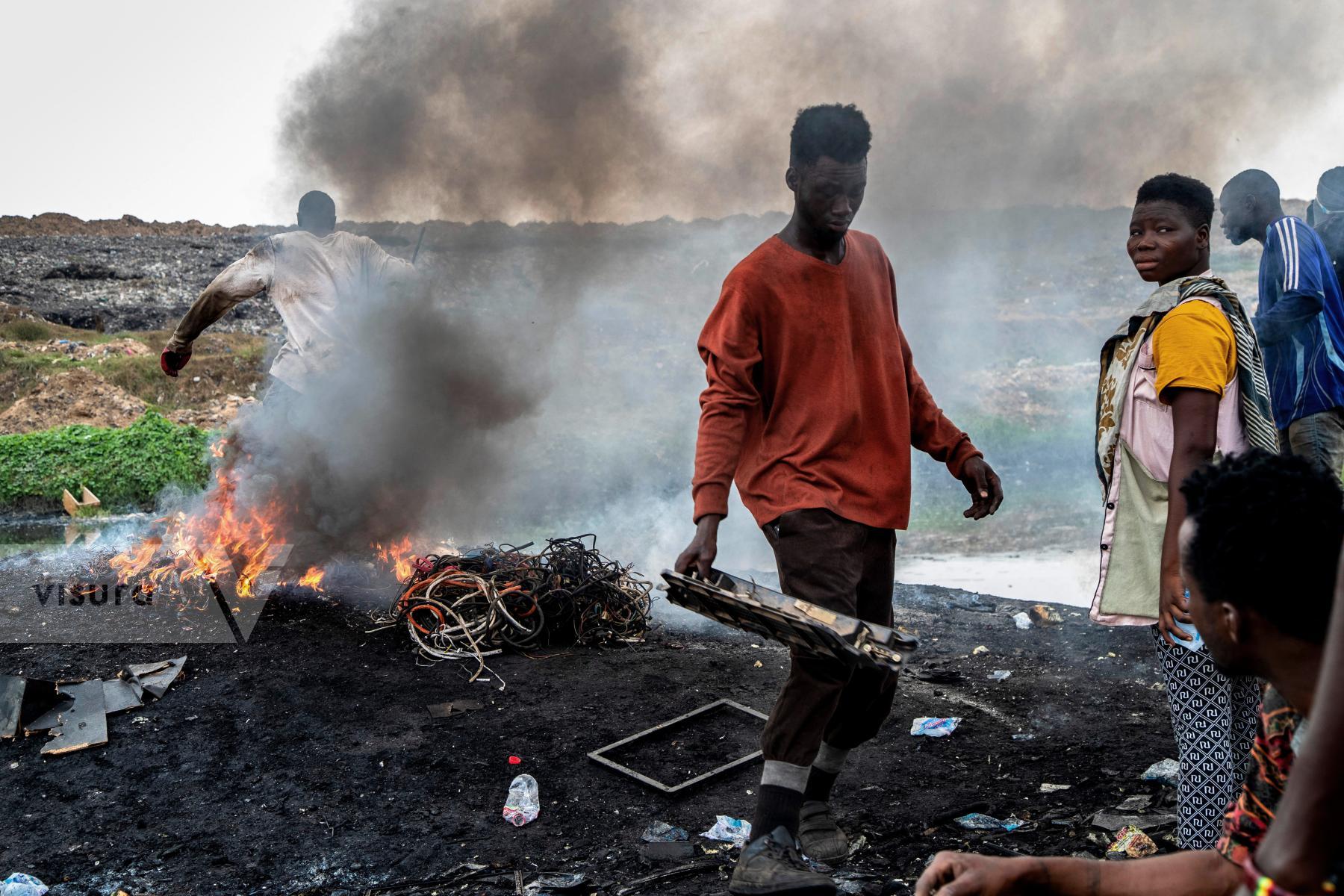
So-called "burners" burn the rubber of cables to get to the copper of the wires faster. The resulting smoke is highly toxic. Accra Ghana
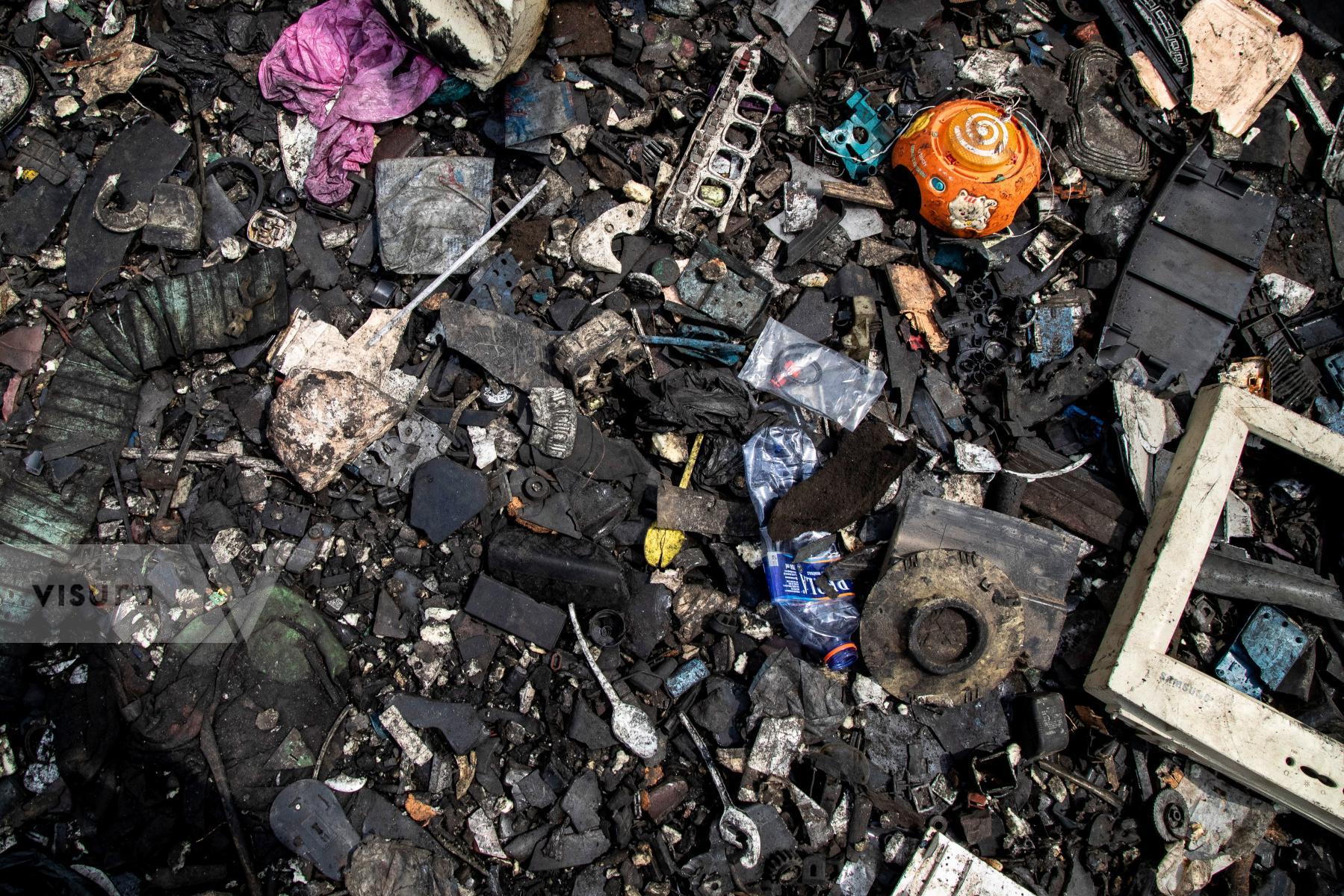
Ground of the new informal e-waste recycling site. The infamous Agbogbloshie e-waste ground has been shut down in 2021 by the government to eliminate the problem of harming the environment and health. Shortly after, the same unregulated recycling of e-waste activities arised around the old area. As the number of broken solar items is increasing and there are no regulations for professional solar waste disposal in most African countries, it becomes part of the general e-waste problem. Accra Ghana
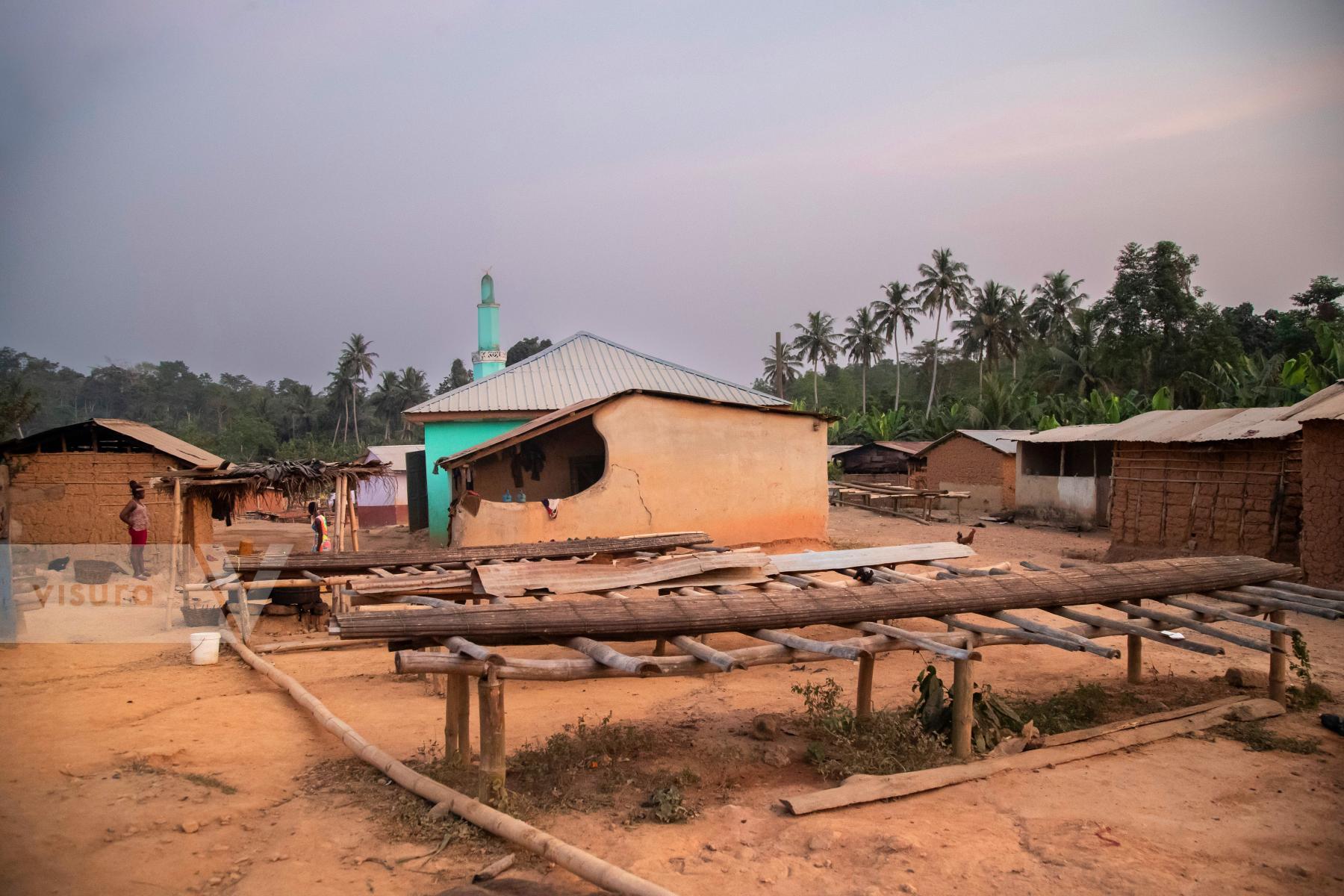
Villagers here are cocoa farmer. They had no access to electricity until the solar kiosk has been installed. Ghana Dauda
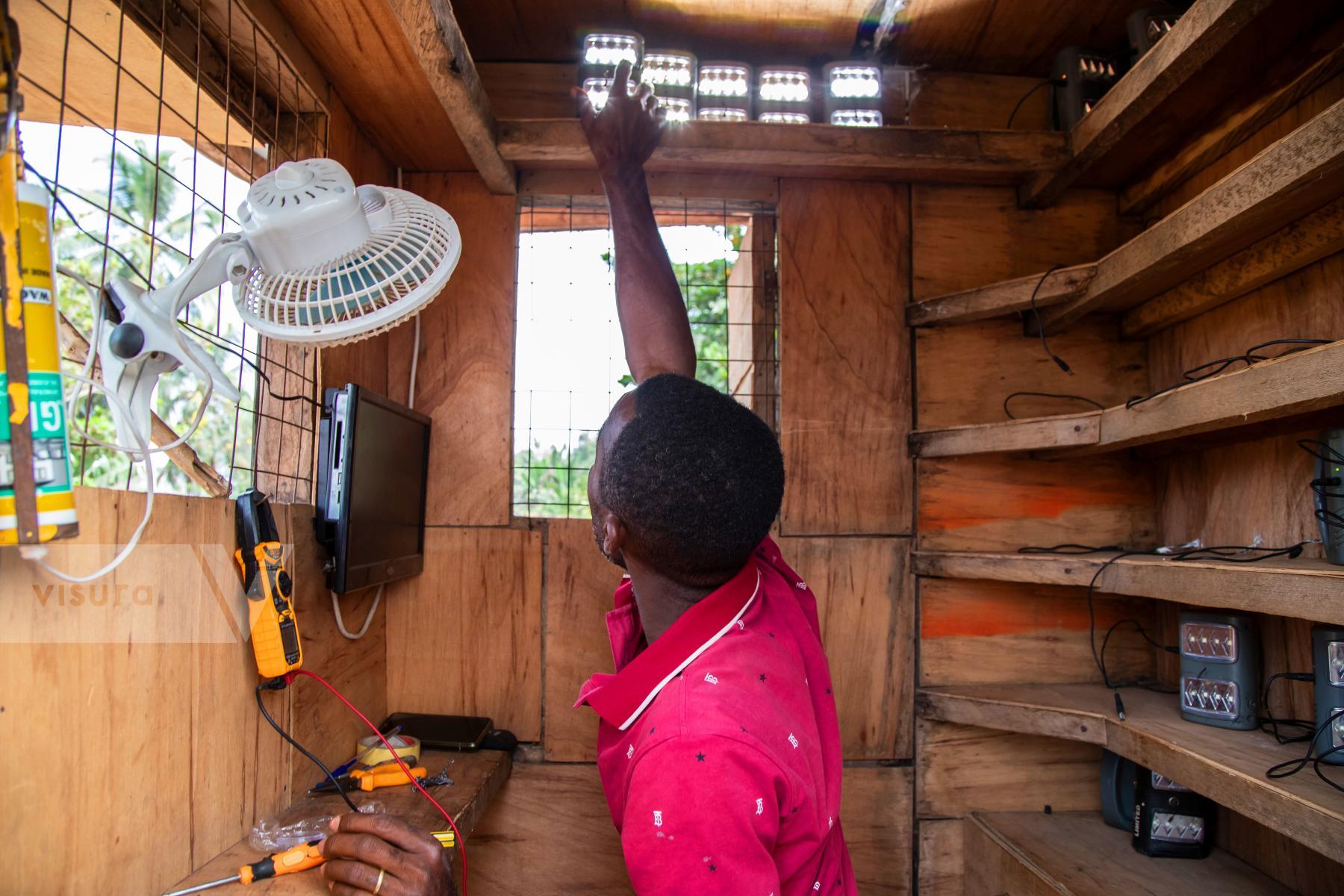
Francis, 33 years, repairs defective solar lamps In the Repairshop. He is trained as electrician and works for Osew`s solar company. The design of the lamps is constructed to be long-lasting. Individual parts can be exchanged and repaired, thus reducing the amount of waste. Before the solar kiosks came to the region, the people there, who mainly live from cocoa cultivation, were dependent on kerosene lamps or used disposable batteries for lamps. Duakwa Ghana
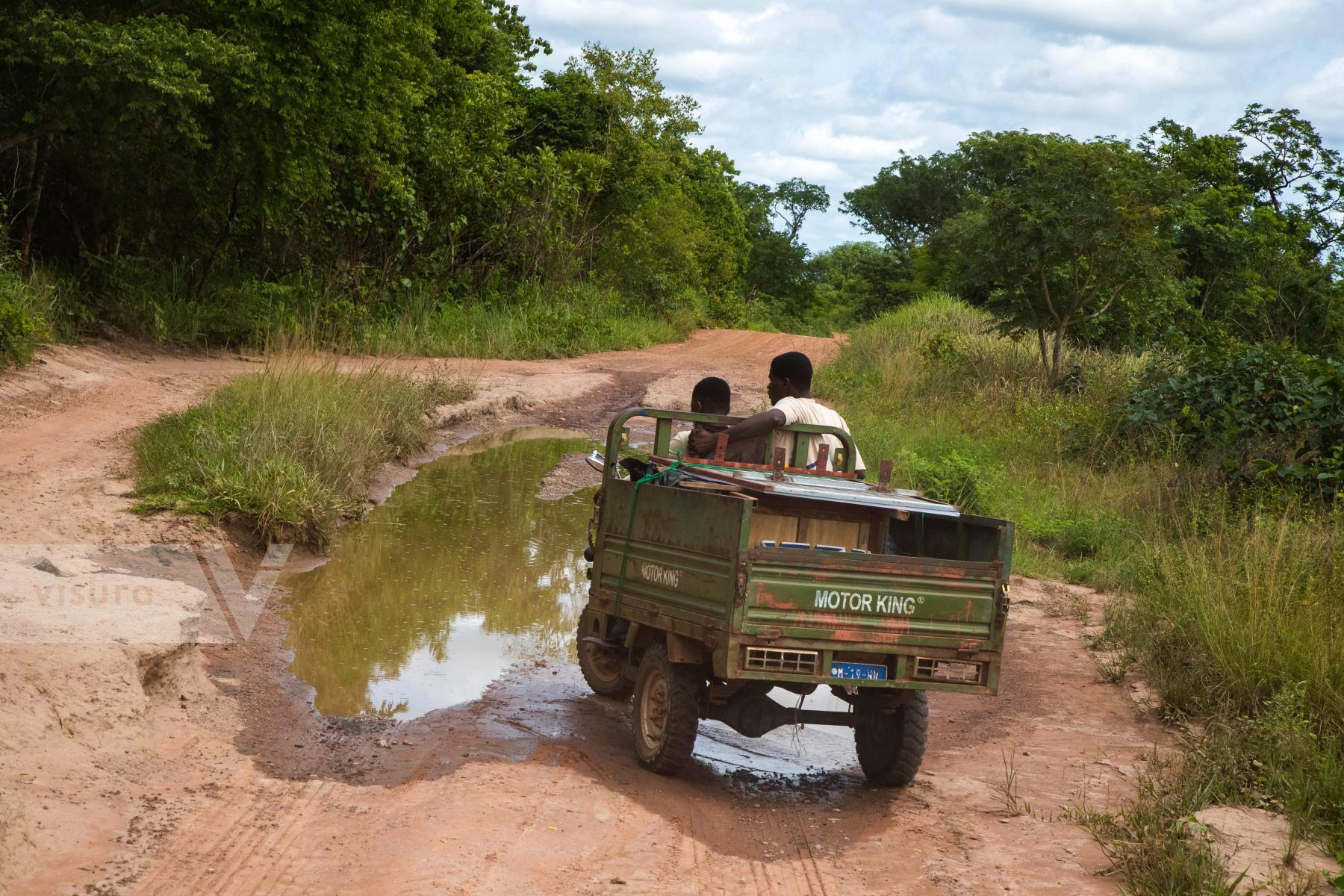
Michael, 23 years, and Bruce, 25 years, are bringing a solar kiosk for installation to a remote village, which has no access to electricity. Often the solar panels alread break on the way due to bad roads Ghana Afram Plain
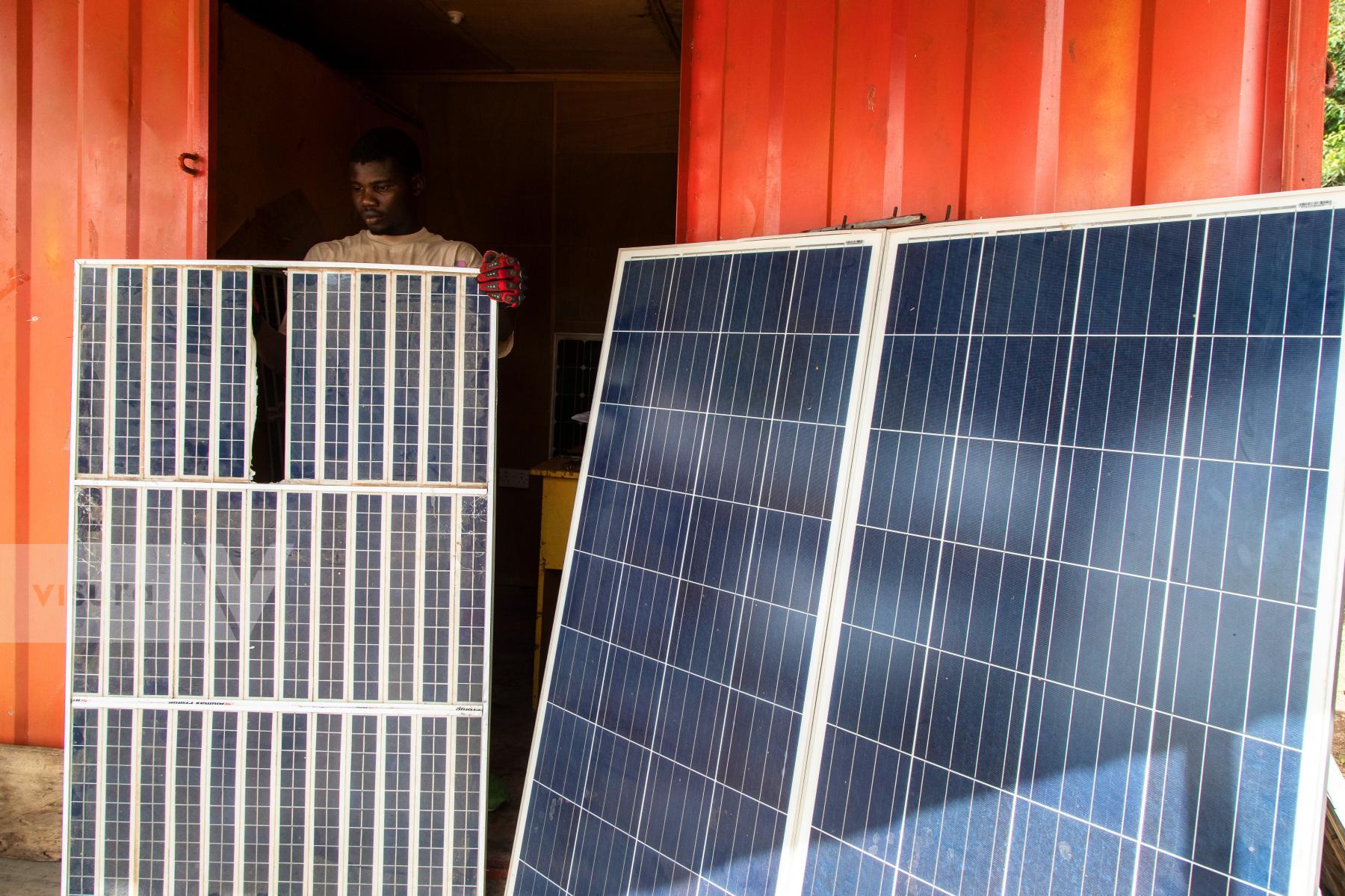
Michael, 23 years, works for Osew. He holds a panel system of the cells, which they are using now. They were using „regular“ solar panels bevor (right), but because they had to throw away the whole panel if a part was broke, they came up with the idea to use small stripes, which are easy to exchange. In that way they reduce waste and cost. Odonkawkrom Ghana
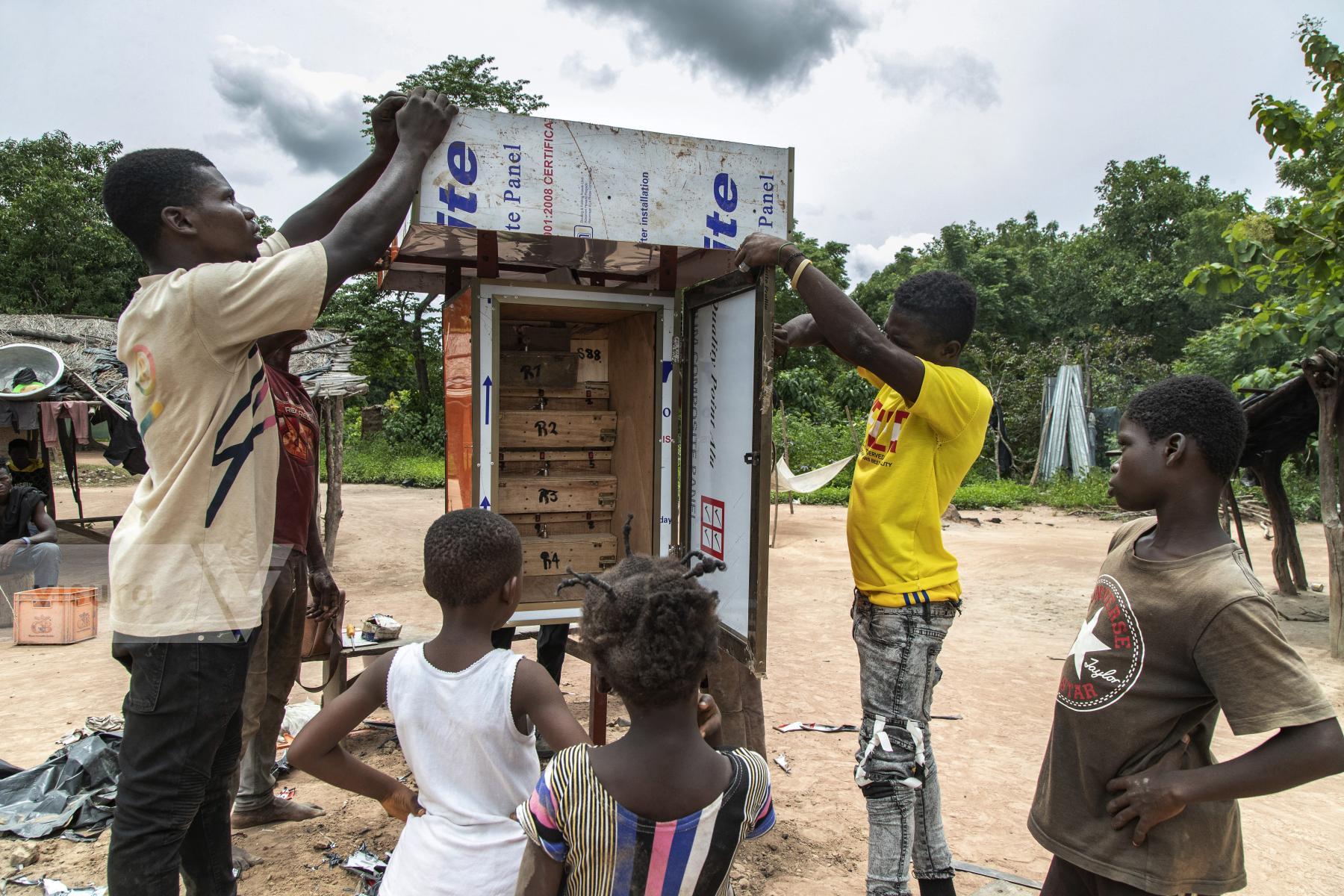
Michael, 23 years, installs a solar kiosk in a village. Jakob, 47, ordered the kiosk and will sell the solar energy to the villagers as an "agent", rent out the boxes and lamps. His dream is to have a fridge one day. The villagers used to have to drive 1 hour to charge their phones and buy new batteries for the flashlights every week, the old ones ended up in the garbage. Ghana Atonsu
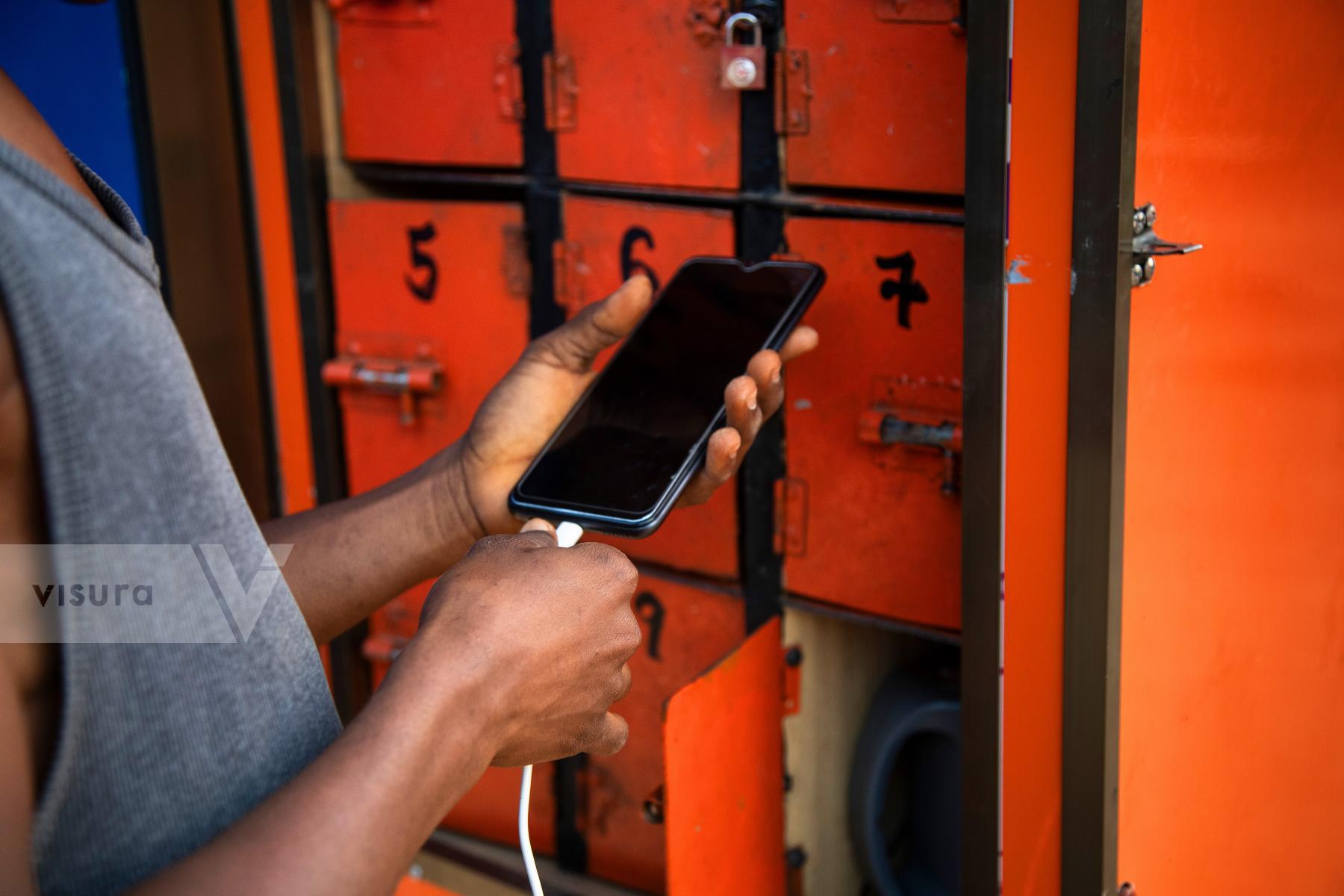
Yakob, 17 years, charges his smartphone. Before the solar kiosk was installed in the village, he had to drive to the next town, which was an hour away, to charge the phone. The villagers can rent a box, in it there are 2 cables, a cable with a USB connection and a cable to charge a lamp. A family usually rents one box, sometimes two. They can lock it themselve with a padlock. Before that, an “agent” distributed the lamps to the villagers in a larger kiosk. Since the agent wasn't always around, Osew's company changed the kisok to be "self-service." Ghana Dauda
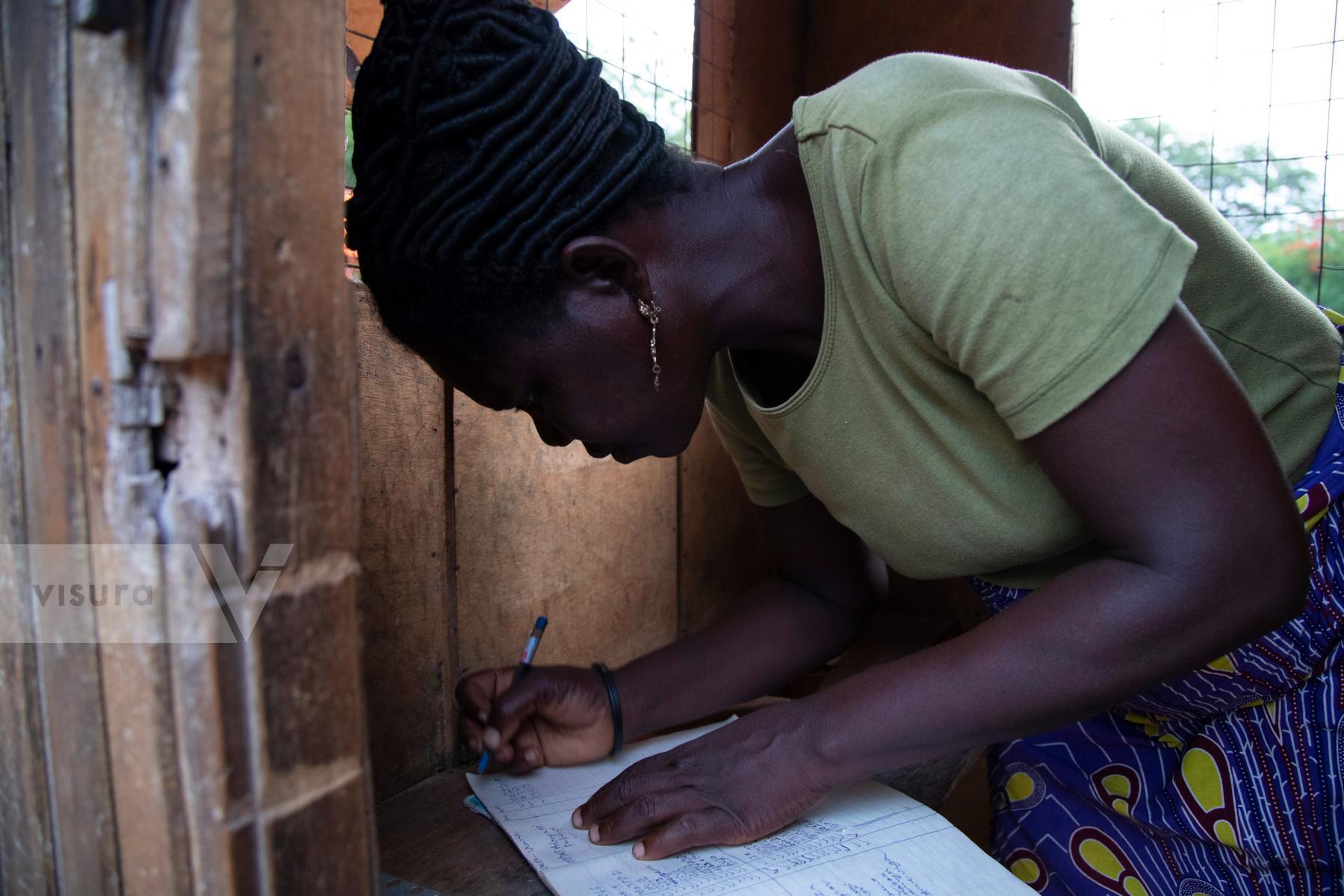
Comfort, 55 years, became an agent of the Solarkiosk enterprise 4 years ago. She is using an older version of the kiosk, where she is renting the lamps directly to the villagers. With the earned money from the kiosk she was able to buy a goat, which now has 2 babies. The latest solar kiosk version is now changed into a self-service system. Ghana Agordeke
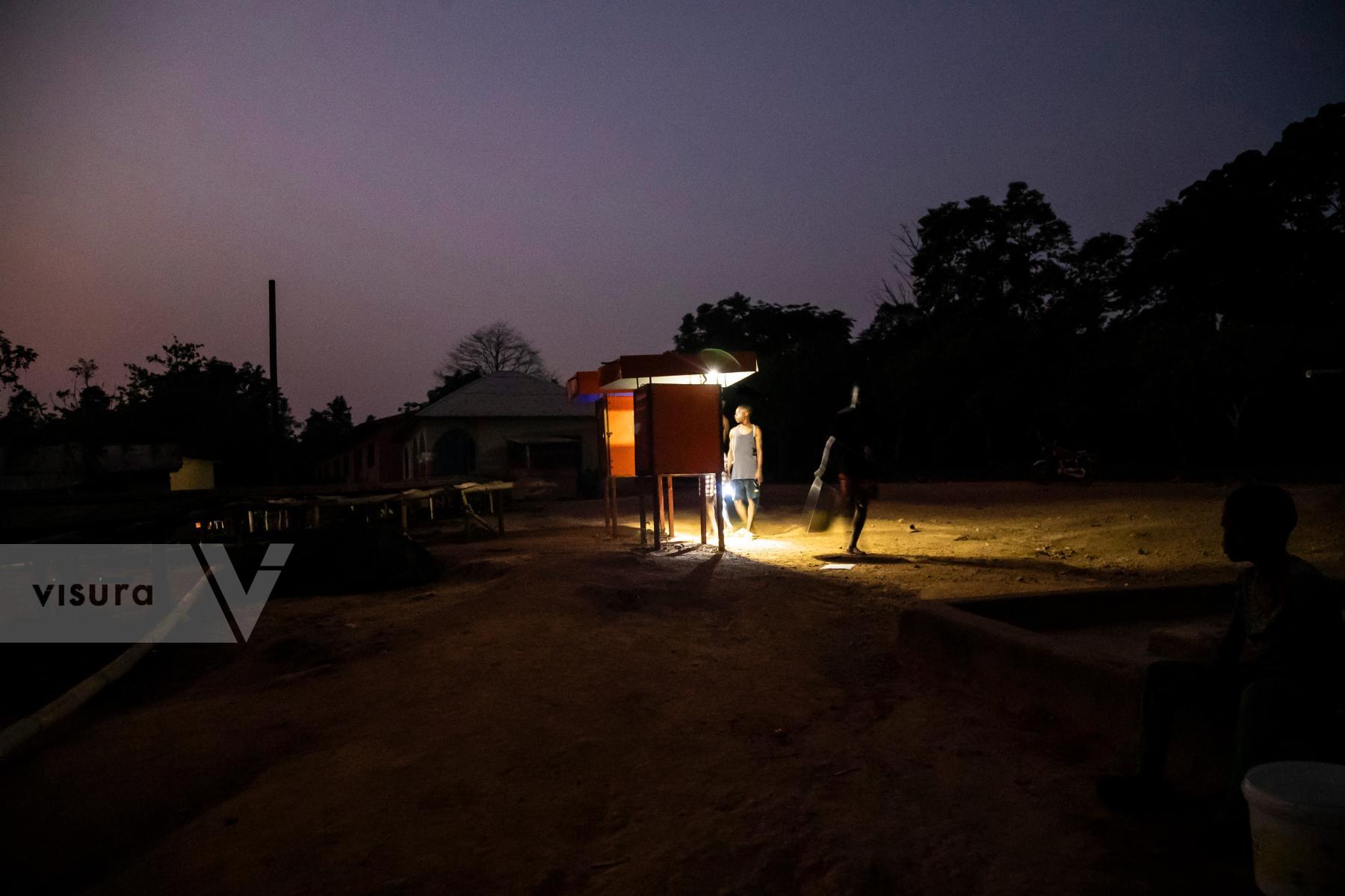
Villagers fetch lamps at the “Solar kiosk” after sunset. It is the only power source in their village. The solar company offers a simple and inexpensive source of energy. The lamps can be rented or bought. The company strives to reduce waste and costs by designing the lamps and kiosk to be durable and repairable. Ghana Dauda
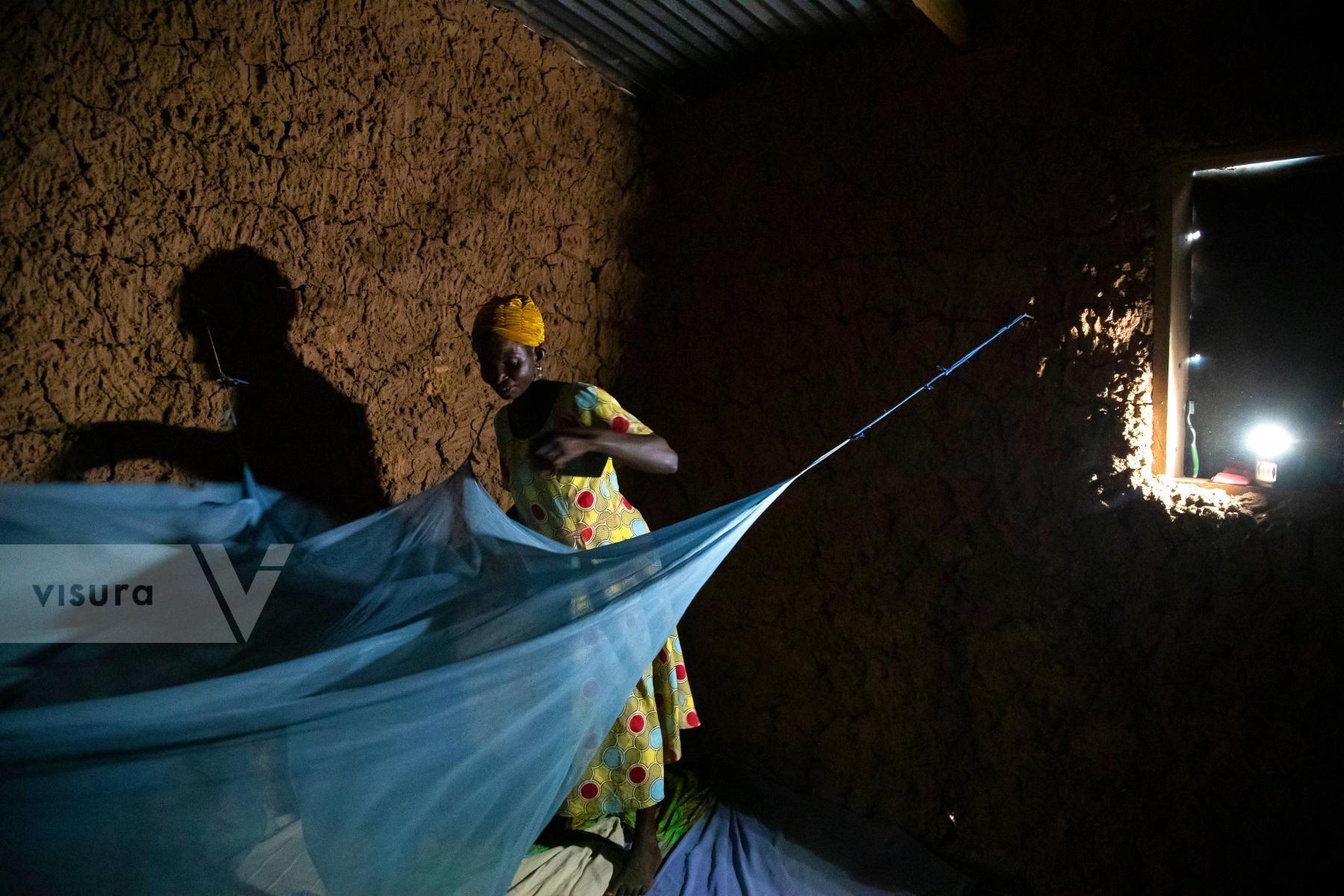
Alija, 55 years, prepares the mosquito net for sleeping in her house. She has 5 children. She uses a lamp which was charged by solar power of the solarkiosk, which is the only source of energy in her village. It is cheap, reliable and most of all: necessary. Ghana Dauda
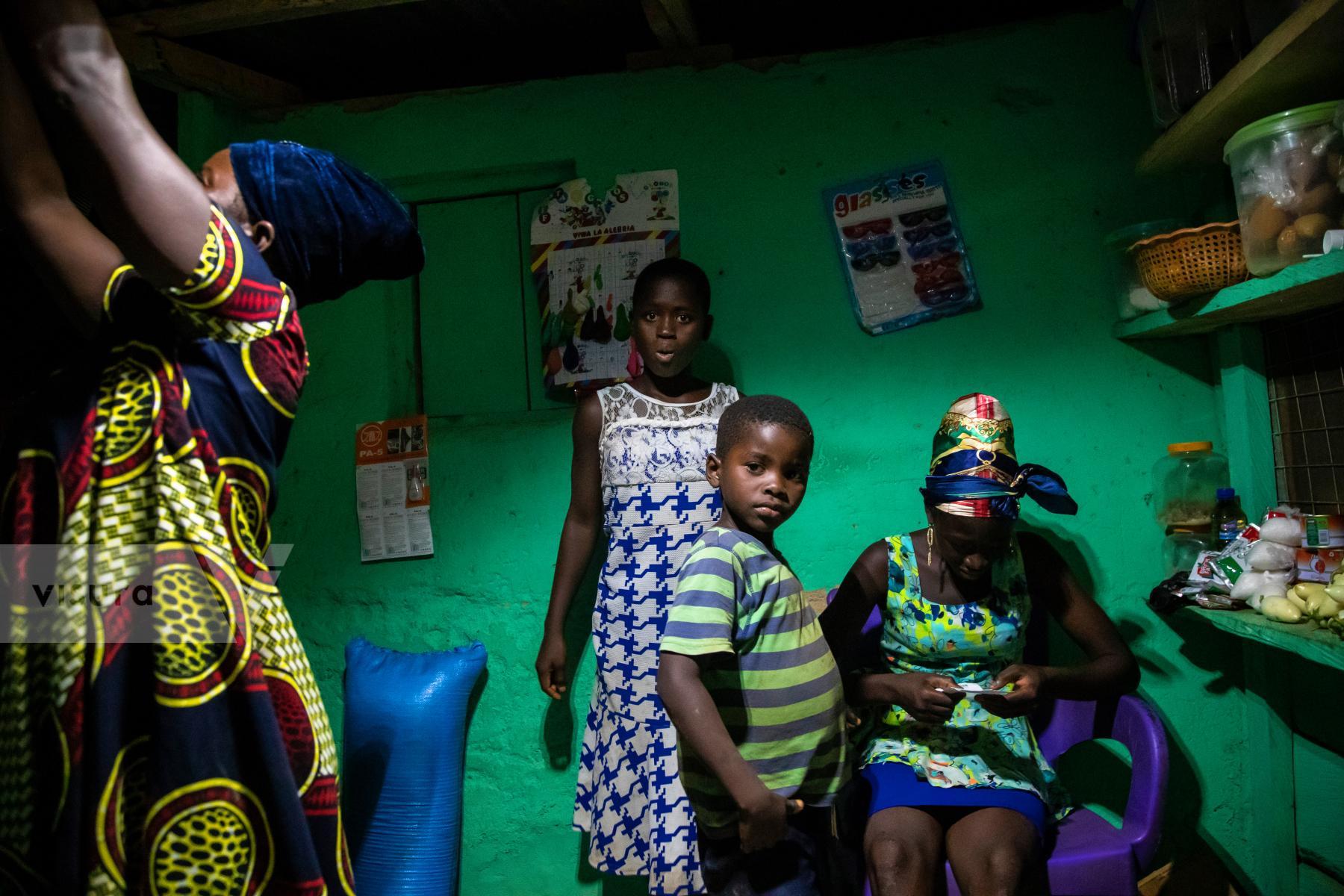
Meriame, 49, can open her shop longer thanks to the solar lamp and therefore make more profit. She has 5 children. Previously, she used a flashlight with disposable batteries. Every week she had to buy new batteries for the flashlights; the old ones ended up in the trash. Ghana Dauda
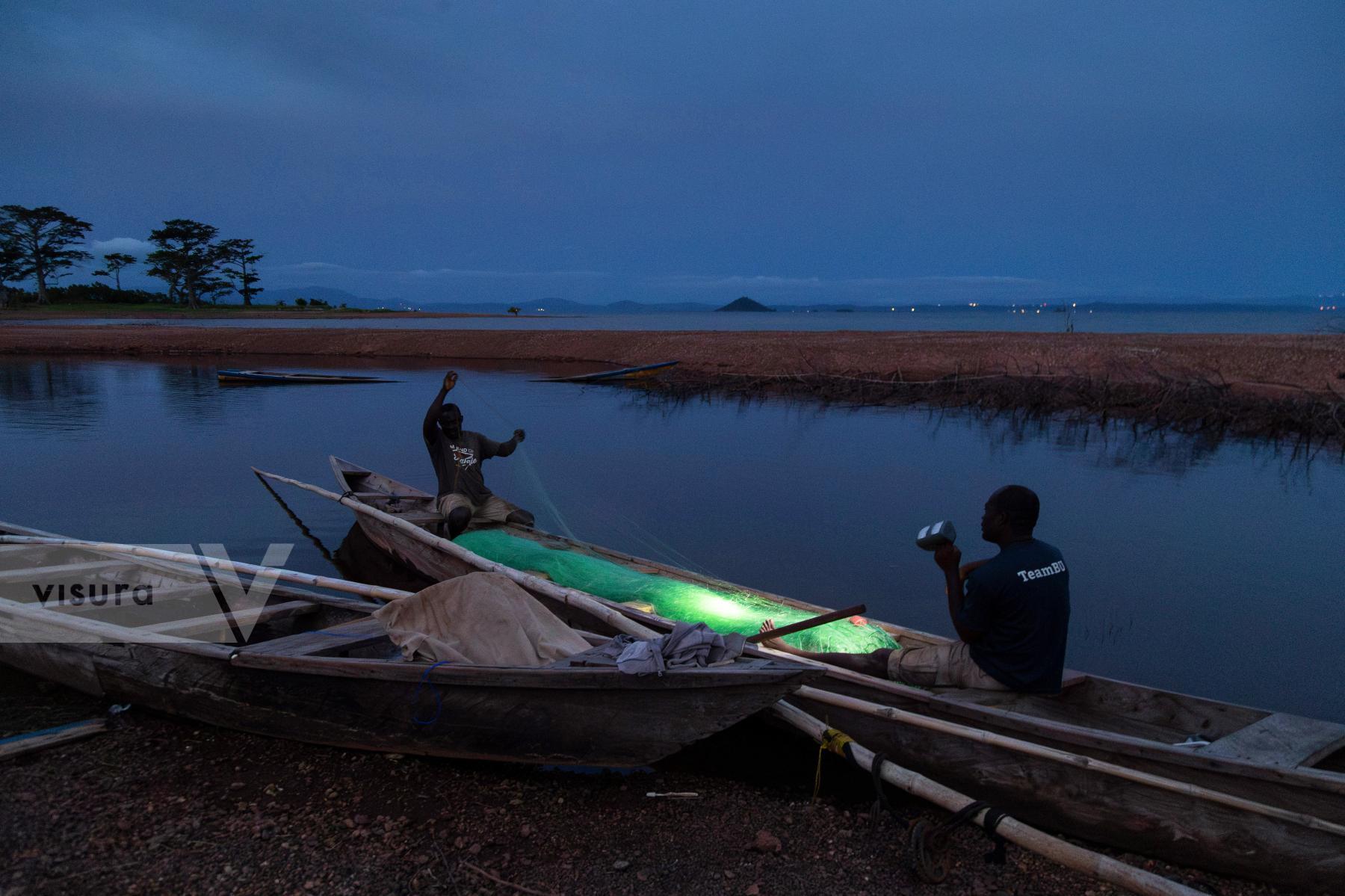
Fishermen are using the solar light for fishing in the night. Agordeke Ghana
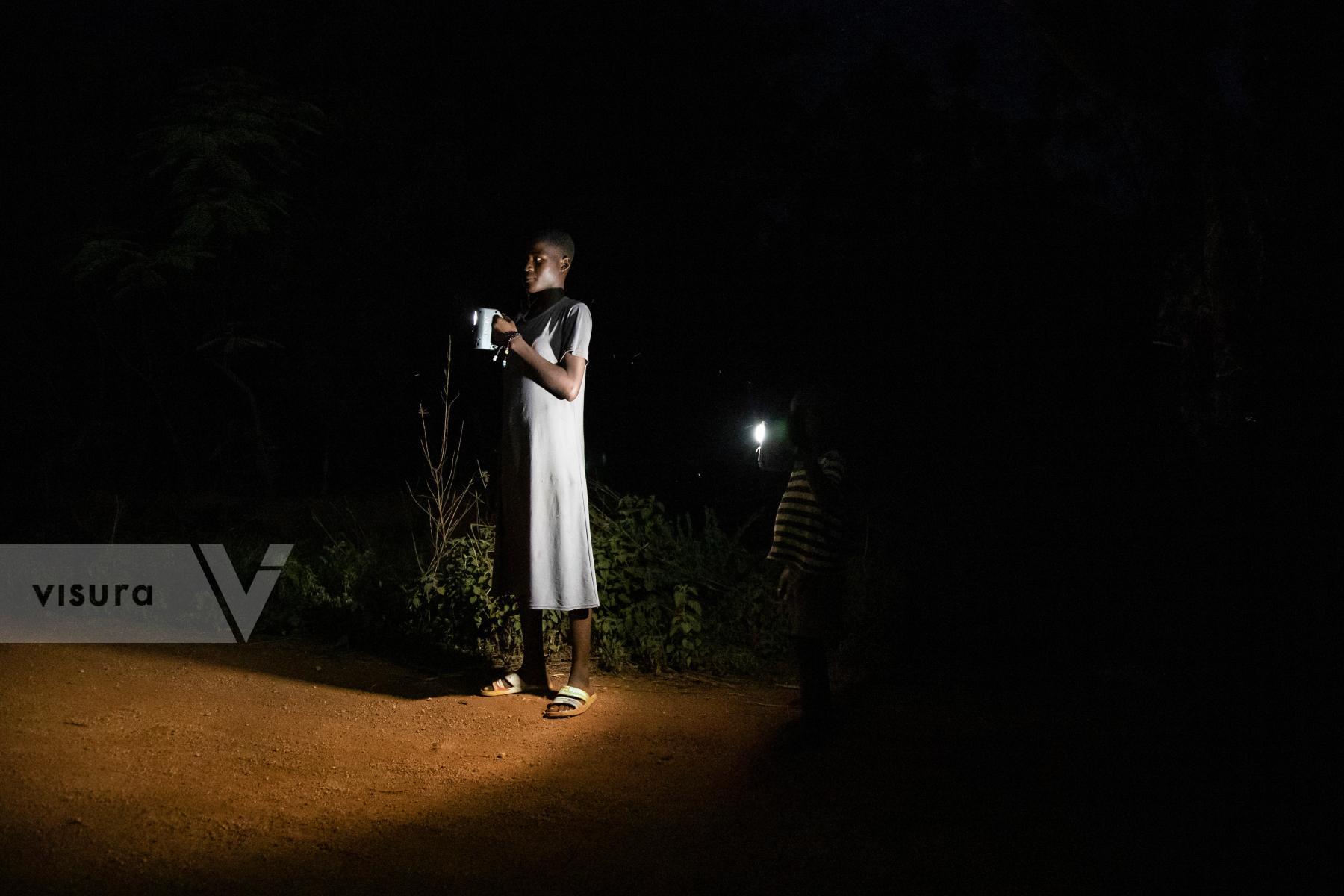
Bright, 8 years, is going home at night with her brother using the strong solar lamp from Osews company. Agordeke Ghana






















